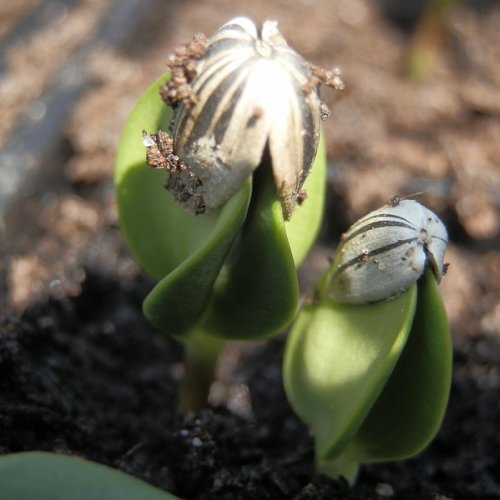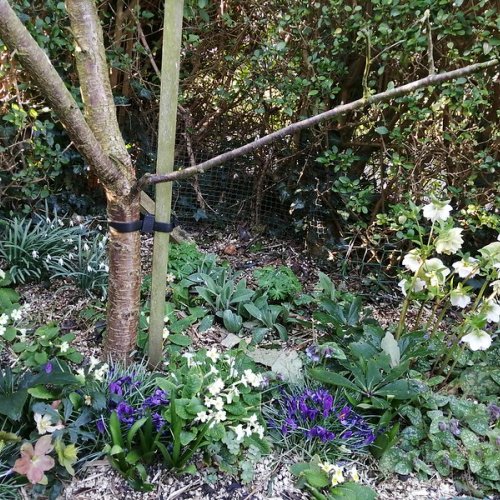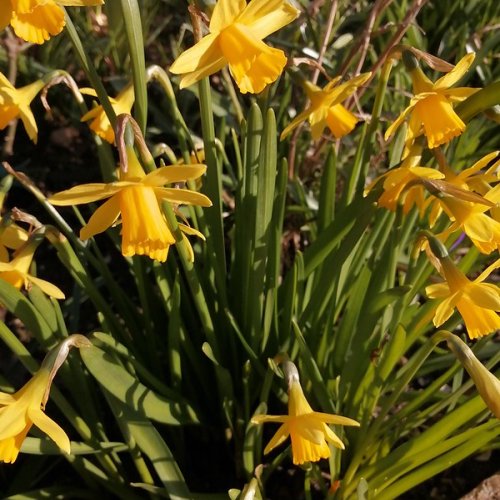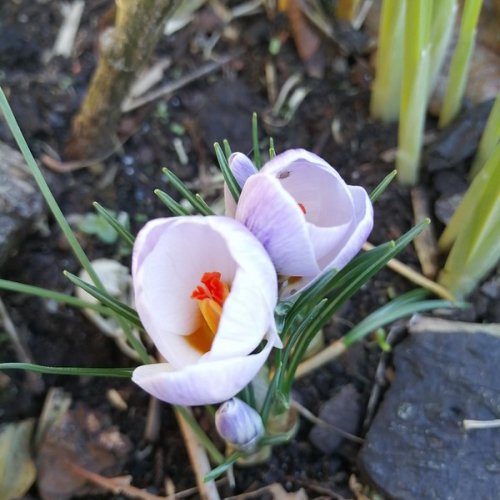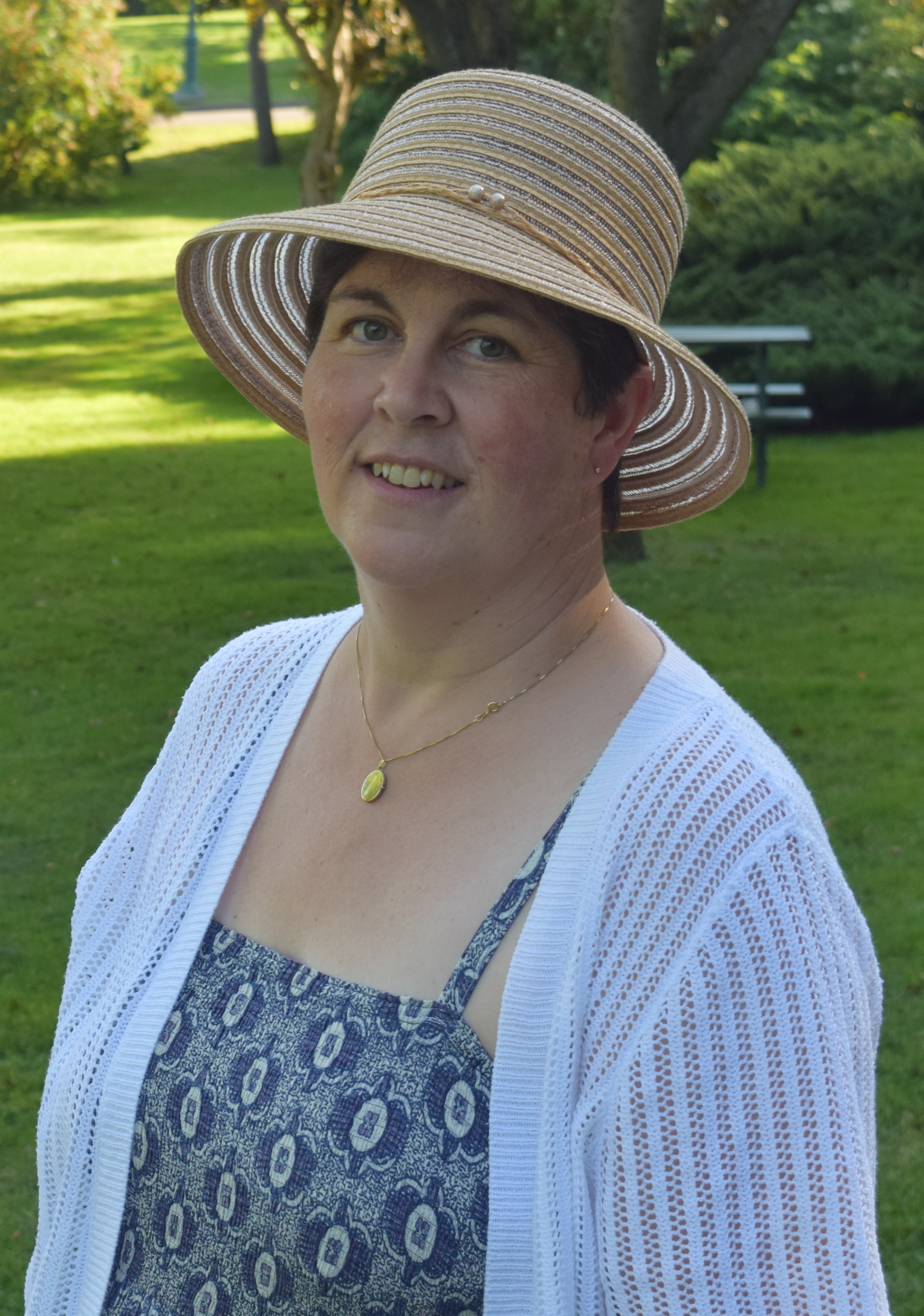There’s something about the first days of spring that inspires people to get out and plant something. Maybe it’s the spreading haze of green along the hedgerows, the rising chatter of birds battling over territories, or the sudden splashes of colour appearing as crocus rivers of purple and gold replace snowdrop drifts in our parks. Maybe we respond to the lengthening days as plants do, rising up from our winter torpor, reaching for the light and the invigorating touch of the March breeze on our face.
As project coordinator for a volunteer programme teaching food growing, early March was always the time of year when we saw a surge in requests for support from schools, families and community groups. It was always a joy to experience this rush of enthusiasm, but we also had to tread carefully; we needed to temper that drive with some realism as people reached for their spades, trowels and seeds and asked, ‘Where do I dig?’ Letting them launch into digging and sowing too soon would do damage in the long-term to the soil and to their enthusiasm and confidence when frosts and dampness destroyed their efforts and taught the implacable false lesson, ‘I just don’t have a green thumb.’
March is a month of extremes. Yes, the world is reawakening after a long, dark, wet winter, but bright breezy days can still pivot into snow, ice and storm. The ground is still cold and sodden, vulnerable to compaction under gardeners’ boots, a hostile environment for most seeds and new plants which much prefer the protection of a greenhouse or windowsill. I love the traditional advice which says that one should not plant carrots until it is possible to drop one’s trousers and sit comfortably ‘bare-arsed’ on the soil.
March is the month for beginning to plant seeds under cover, for continuing to plan for the warmer days that are just around the corner. For Christians, early spring parallels the season of Lent with its lessons of self-restraint before the joy and exuberant celebration of Easter. A period of deliberately holding back in anticipation, of straining at the leash, makes both spring and Easter all the sweeter when they come.
This year there is an added dimension to my straining at the leash. For the past three years and more I have struggled with fibromyalgia, drained of energy and moving around the house and garden like an arthritic old woman. Two years ago I was pleased at my progress when I managed to pot-on my numerous tomato seedlings while sitting at the kitchen table. Last year I was able to stand to this task and complete it without frequent tea-breaks. This year I have begun spring with a weekend in Norfolk, where I walked ten miles over the course of two days. I stood in the middle of a marsh in rapt tears, listening to the bubbling call of the curlew for the first time since I left my garden in Scotland 18 years ago. It was a moment of pure joy and thankfulness for my recovery and for my renewed ability to stand in that spot.
Today’s bright blue skies, scudding clouds and birdsong are calling to me. I feel I could turn the compost heap, barrow a ton of compost and mow the lawn all at once, but in my heart I know better. I am not fully recovered yet and still need to pace myself. Like me, my garden may be showing signs of growth and recovery but too early a start will lead to inevitable set-backs, disappointment and physical damage. I shall continue to sow seeds in short bursts, to explore the new growth and cut the first juicy spikes of chives, but for now, both literally and metaphorically, it is a little too early to say, ‘For, lo, the winter is past, the rain is over and gone.’ Sometime soon though I shall be able to spend a day in my beloved garden saying, ‘[Now], The fig tree putteth forth her green figs, and the vines with the tender grape give a good smell.’ Just for now, I shall hold and treasure my enthusiasm; it's a hard, hard task to tackle but my body and garden will both thank me for my restraint.
For, lo, the winter is past, the rain is over and gone;
and the voice of the turtle is heard in our land;
The fig tree putteth forth her green figs, and the vines with the tender grape give a good smell. Arise, my love, my fair one, and come away.
Song of Solomon 2:11-13
Digging is not an essential part of being a gardener and is harmful for your soil as well as your health. Read my new pages for more.
